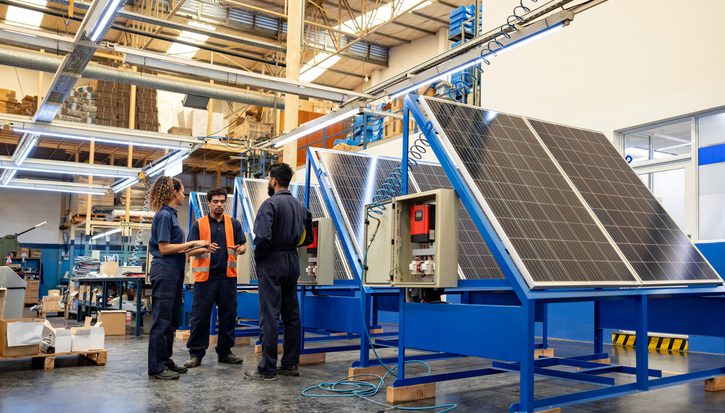Dusting off the Sangatte playbook: A humane, practical course of action in Calais
Article
Thirteen years ago I was a special adviser to the home secretary of the day, David Blunkett. I advised him on immigration and asylum policy, among other things, and one of my most important tasks was to negotiate a deal with the French government to tackle clandestine migration to the UK from the Pas de Calais and to close the so-called Sangatte centre, a large facility in which migrants lived while attempting to reach the UK.
Then, as now, the British public was fed a regular diet of TV news bulletins and newspaper stories about migrants risking life and limb to get the UK by stowing away on lorries or breaking into the Eurotunnel terminals. Sangatte came to symbolise a loss of order and control over the UK’s borders; it poisoned debate about immigration, and rendered it impossible for ministers to get a hearing for their policies. For David Blunkett, it was imperative to get it closed. Many refugee groups agreed with him, though neither proponent thought it was anything other than a symptom of wider crises.
In 2002, the migrants were mostly Afghans and Iraqi Kurds, in contrast to the Eritreans, Syrians, Sudanese and other African nationalities there now. There were fewer migrants too: estimates suggest that between 5,000 and 10,000 people are currently living in the rough encampments of 'the Jungle' that has replaced the Sangatte camp, which housed 2,000 at its peak.
The deal that Blunkett and Sarkozy hammered out was to invite the UNHCR to oversee a process of registering the migrants at the Sangatte camp, fixing the numbers eligible for a programme by which they would be divided between transfer to the UK and staying in France. Blunkett originally offered to take all the Iraqi Kurds, who made up some two-thirds of those in the camp, but in the final deal Sarkozy pressed him to take Afghanis with family members in the UK too. This basically meant that almost of Sangatte’s residents came to the UK. (A curious footnote to this episode is that the deal that had been brokered by myself and Home Office officials with our French counterparts was brusquely dismissed by Sarkozy a couple of days before the final meeting with Blunkett. He arrived at the French Embassy in London demanding the inclusion of the Afghans in the UK side of the deal, which Blunkett had no choice but to accept. Sarkozy revealed at the end of the meeting that he had been privy to Home Office communications with the British embassy in Paris, which meant he knew the British side’s fall-back positions. In the post-Snowden world I am less surprised about this than I was at the time.)
The Sangatte residents were given four-year 'work visas', enabling them to gain employment in the UK without a work permit, for which they would have needed a sponsoring employer. These visas were a creative solution to the problem that the UK could admit the camp’s residents neither as asylum-seekers (since they should have claimed in France or another transit country) nor as sponsored employees filling skills shortages. It meant that they could transfer to the UK and, after a period in temporary accommodation, find work. What little evidence we have on the Sangatte residents – as far as I know, there is only a small-scale study involving 15 interviewees – suggests that most did find low-skilled employment in industries like food processing and packing.
At the same time as the Sangatte deal was concluded, the UK government was opening up greater channels for legal economic migration to the UK (before the entry of EU nationals from the A8 countries to UK labour markets in 2004). It also joined the UNHCR’s refugee resettlement programme, by which refugees are brought from camps in conflict zones directly to countries like the UK, without facing the perils of irregular migration or paying the entry prices demanded by people smugglers. These two policies were designed to supplement a tightening of border controls – in Calais and the UK – with legal, regular economic and refugee protection routes into the UK. Economic migration expanded massively after 2004, as is well known. But the refugee resettlement programme has been little used: only 750 refugees can come to the UK this way each year.
Is this just ancient history? I suggest that the current government could learn something from David Blunkett’s policies. Increased security at Calais might prevent migrants risking life and limb to get to the UK, as it did for many years after the Sangatte camp was closed (indeed lax security may be the most harmful outcome, given that it would encourage more risks to life). But it will not deal with the migrants currently living rough in the Pas de Calais, nor the wider problem of refugee and migrant flows into the EU via the southern Mediterranean.
As far as the latter is concerned, there is no evidence that increased aid will make any difference, as Jonathan Portes has pointed out. The EU could certainly agree proper long-term burden-sharing arrangements, as the Italians and Greeks have demanded. It could invest in migrant facilities in north Africa and stronger bilateral agreements with those governments in the Magreb whose state authority still exists. At a stretch, it could do more to support conflict prevention in east Africa and the Middle East. But we will wait a long time before any of these measures starts to bring down substantively refugee and migrant flows into the EU.
That leaves action to help those currently living in the camps around Calais. Here the Home Office could dust off the Sangatte playbook: do a deal with the French government; bring in the UNHCR to register migrants; offer those seeking refugee protection a proper process for applying in France or access to places on the UK’s refugee resettlement programme; and give those with family members in the UK a 'work visa', enabling them to work without recourse to public funds.
The British public will take some convincing of this, of course. But it would be the humane, as well as practical, thing to do. And if ministers had the courage to do it once before, they can do so again when circumstances demand it.
Related items

Resilient by design: Building secure clean energy supply chains
The UK must become more resilient to succeed in a more turbulent world.
Policy credibility and the Scottish Budget

Reclaiming Britain: The nation against ethno-nationalism
How can progressives respond to the increasing ethnonationalist narratives of the political right?